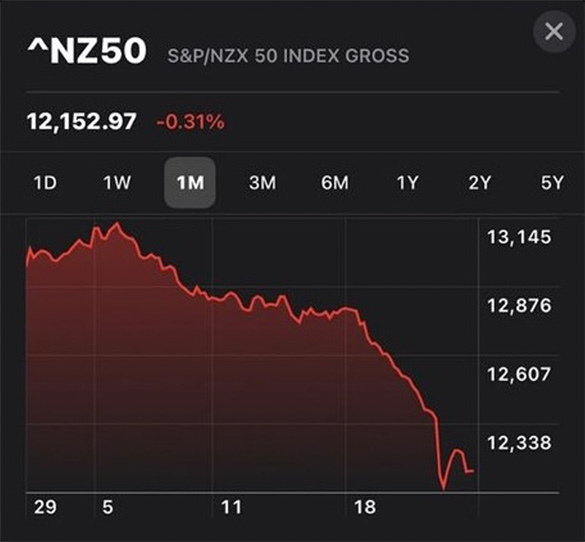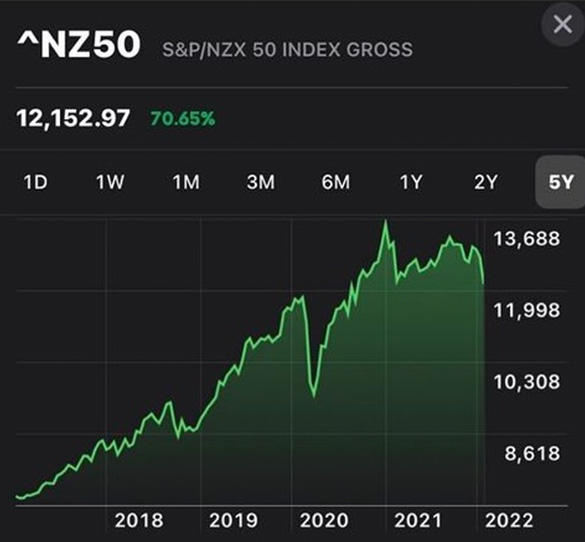What is a downturn and what causes them?
To summarise it, a downturn is a decline in the economy which generally adversely impacts investments. For a lot of young investors, this downturn will be causing nerves, because it will be the first one they’ve experienced in their time in the market. A few nerves are natural, but understanding what causes a dip, and accepting that they’re a natural part of investing, can help to alleviate the butterflies.
So why does a market dip? The truth is there is very rarely one single reason or clear cut explanation as to why a market turns. More often than not it’s due to a combination of reasons; things like war and other environmental factors, increases in inflation, changes to OCRs, reductions of artificial stimulus and other factors can all contribute.
What all of the above have in common is that they are either based on or generate uncertainty. Uncertainty in turn effectively reduces confidence in the market and the market enters a period of downturn. In the case of the most recent downturn, we think the biggest contributing factors are a high inflation rate that has led to higher than expected interest rates, reduced stimulus from central banks, the political uncertainty stemming from the war in Ukraine, and the ongoing effects of the Omicron outbreak.
So, although it may seem scary when you see your investments are down rest assured that the dip is caused by very real and tangible factors that can be understood and therefore managed.



